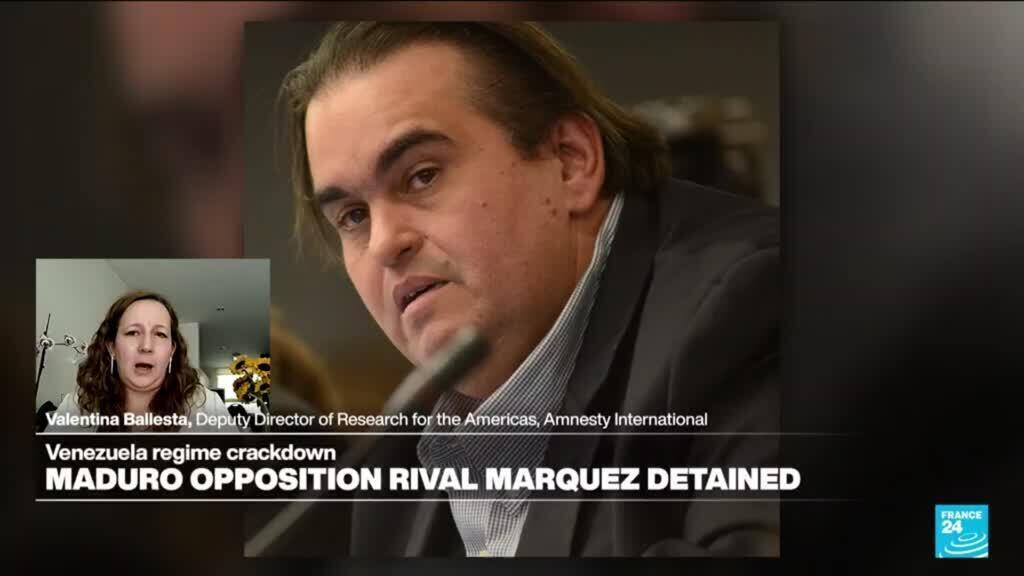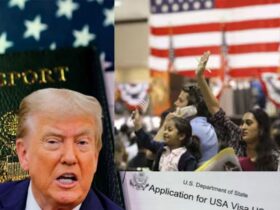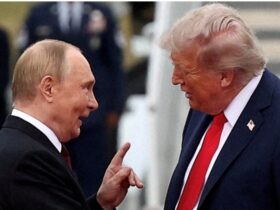In early 2025, as the United States announced sweeping aid cuts that primarily affected African countries, there were fears that Western interest and influence on the continent was waning. Along with this, it supported strengthening of democratic norms and traditions.
Substantial funding comes from Western democracies, as well as from observer missions around the elections, through multilateral organizations such as the United Nations and the African Union. Without it, or with less of it, how will Africa’s democracies – which already often face significant challenges – fare?
Is the West getting too much credit?
Many observers consider the upcoming elections in Tanzania and Uganda to be a formality rather than a fair contest. Tanzania’s opposition party Chadema has been banned from competing, its leader Tundu Lissu is in custody facing treason charges, and Kenyan pro-democracy activists have claimed he has been detained. kidnapped and tortured,
Ugandan President Yoweri Museveni is seeking to extend his four-decade rule, and prominent opposition figures such as Kizza Besigye and Bobi Wine have warned of increasing oppression.
“In terms of overall democratization, one of the trends we have seen in East Africa is the repression of political opposition, and the targeting of political parties and leaders who are trying to upset the status quo,” said Seema Shah, head of the democracy evaluation unit at International IDEA, a Sweden-based intergovernmental organization that advocates for democracy around the world.
Kenya has also experienced a crackdown on youth protests and politically motivated kidnappings. President William Ruto’s regime has faced criticism for its heavy-handed approach.
“It takes a lot of time to get into the rhythm of peaceful change and for people to accept that a certain amount of friction, debate and protest is natural and healthy, and we have to focus on elections and the benefits of being in power,” Shah told DW.
Trump’s election has boosted the morale of authoritarians
Cassandra Dorasamy of Amnesty International South Africa claimed that US President Donald Trump’s return to the White House has affected the way democracy is viewed.
“Over the past few years, authoritarian practices have been encouraged and accelerated by the election of President Trump,” he told DW.
Trump’s actions to weaken institutions aimed at advancing human rights and democratic values abroad have alarmed observers in the US and abroad. This included effectively closing USAID and cutting funding to broadcasters Voice of America and Radio Free Europe.
But Dorasamy points out that democracy is under attack not just in the US, but also in Europe: “With the rise of anti-rights movements around the world and from Europe to Africa, we are seeing the strengthening of narratives that have promoted anti-immigrant sentiment, anti-democracy sentiment.”
Yet, according to Shah, studies show that democracy is the most popular form of governance.
“But they [citizens] They are unhappy with the way their democracy is functioning,” he said, pointing to violence during elections and repression of opponents after winning campaigns.
For South African artist and activist Lindelani Mnisi, reinvigorating faith in democratic ideals starts with teaching at the grassroots level: “Educate civil society about their political rights, educate them about the intentions of certain parties so they can vote intentionally,” she told DW, adding that this aspect is important for leaders to keep in mind.
Dourasamy called for courage to face the challenges to democracy, especially with upcoming elections in Tanzania, Ivory Coast, Cameroon, Central African Republic and Uganda.
“Our response as civil society needs to be bold enough to call for free and fair elections. But also to call for a rethinking of the structures that are used to wield power at the time of elections, whether it is SADC [Southern African Development Community] Or the African Union mechanism. “The elections should be observed not just from European or Northern countries, but also within Africa,” he said.
Voting trends are changing
Voting habits have changed in African democracies, particularly in South Africa, Namibia and Botswana, where long-ruling parties have seen their voting shares decline.
Environmental justice advocate Patricia Beko told DW that she has noticed a change in voting preferences and habits in her home country, Ghana.
“Earlier we did a lot of tribal politics. If this person is coming from my tribe, and they are contesting elections, I have to vote for that person,” he told DW.
“But I think over a period of eight years, Ghanaians became so intelligent that they really paid attention to the economy. They paid attention to the policies that the government promised to implement that were not implemented. And we voted en masse for change.”
Ghana has seen several peaceful transitions of power, and is considered a stable democracy in West Africa. In 2024, John Mahama returned to the presidency. His National Democratic Congress and New Patriotic Party have provided support to Ghana’s leaders since the re-introduction of democracy in 1992.
power from within
“Of course it’s terrible that so much aid has been cut, but we also need to think about what kind of opportunities this opens up for local organizations and people,” Shah said.
Asked whether African democracies should still look to the West as a guide to the best practices of democracy, Cassandra Dourasamy said: “Absolutely not. This notion that the West is the upholder of democracy is something we really need to challenge. We need to look within our own spaces, within our own democratic structures and institutions, within our own movement.”
For Lindelny Mnisi: “It is not at all obvious. Our world is quite different from the West, not so fundamentally that we cannot learn anything from them, but we must start at home.”
For Shah, self-owned, self-created democracy is the most powerful form.
“There are a lot of motivated and united groups that already want these changes and are working in a very unsafe environment for them,” he told DW.
With particular reference to the challenges to democracy in East Africa, where pro-democracy voices are coming under increasing pressure, she says: “It’s not that there isn’t energy there. If support can come from within the region, even better, because then it will have more legitimacy and a greater chance of being sustained in the future.”
Dianne Hawker in South Africa contributed reporting
Edited by: Keith Walker






Leave a Reply